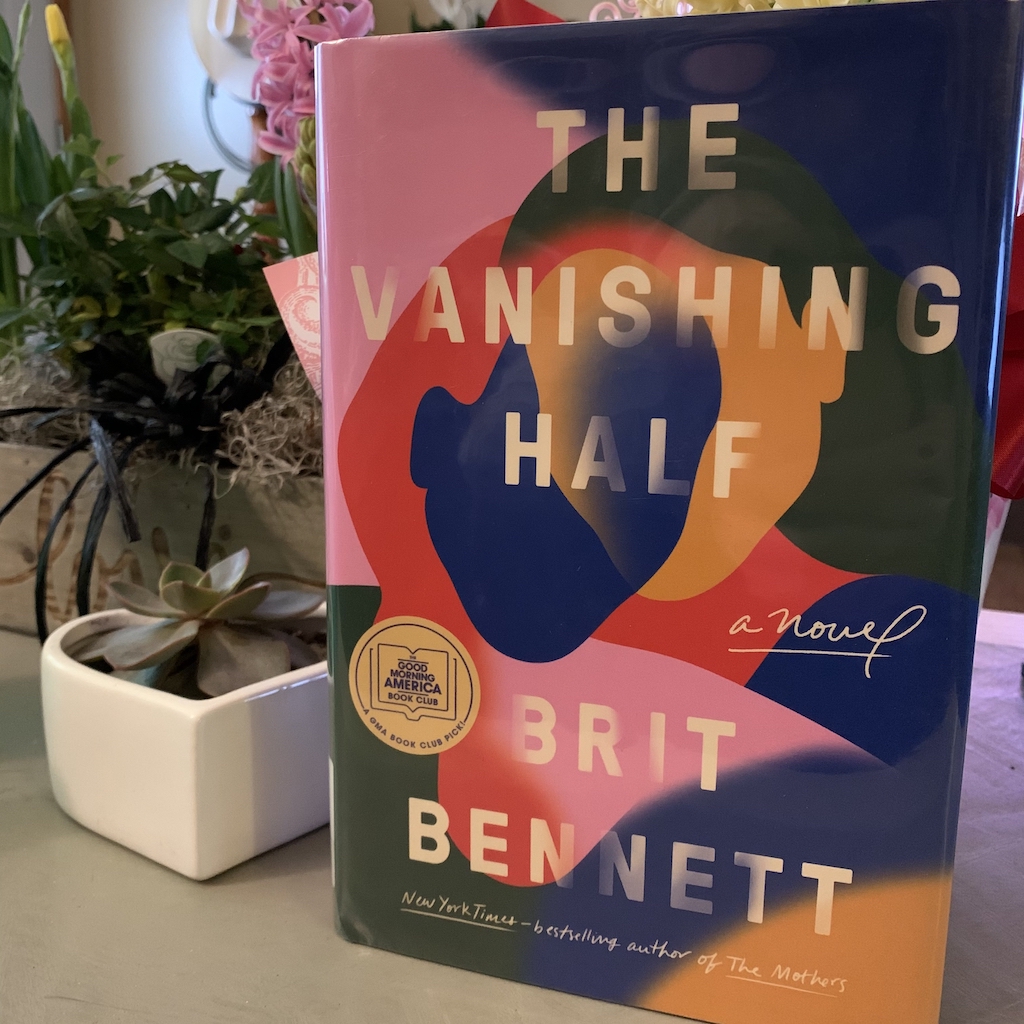The Vanishing Half, Brit Bennett

Short Overview
Twin sisters, Stella and Desiree Vignes, grew up in a small black community in the south. Although they were considered black, the color of their skin showed differently. Desperately wanting to leave the confining community with dreams of living in the city, the girls ran away from home.
There, Stella, smart yet less ambitious than Desiree, passes as a white woman and begins living a separate life from her sister. Stella vanished– not telling her sister her plans for a better life. The girls’ lives take them in different directions, where they never speak to each other and even worse, don’t know where the other one is.
The next generation of Vignes women are weaved into the story, but are they able to reconnect their mothers and make peace with the past?
My Favorite Parts
I love the timeline of this story. Beginning with the twin’s lives and eventually, Bennett brings in their daughters’ lives. I like how the daughters explore their own relationship and uncovering that of their mothers.
I appreciate the exploration of love and the emotional processes that come with loving someone different and new (or someone from the past). Because of when the story is set, having unconventional love or different life on the weekend is looked down upon. So I like that Bennett brought that into the characters.
This story has a different lens on black people in the 1950s than I have read in other books. The way Stella is written, passing as a white woman, Bennett displays the wants, needs, aspirations, of black people living in a free world.
My Reflection
The ‘what’
It wasn’t until later in the story when Stella’s view is brought to life, that I truly wanted to understand her better. Stella convinced everyone around her, including herself, that she was a white woman.
“White Stella.”
“…she closed her eyes and slowly became her. She imagined another life, another past.”
“She let her mind go black, her while whole life vanishing, until she became new and clean as a baby”
Once Stella explored that opportunity, she knew she could live a new life. A free life — freely walking into museums, restaurants, and businesses. She ended up marrying a white man, living a life without monetary worries and had a white daughter.
For her entire life, Stella keeps her secret of being black, from everyone — her husband, daughter, and neighbors. She purposefully distances herself from being close with others, so her secret isn’t exposed. This secret haunts her mental capacity and is shown in her behavior.
The ‘so what’
This is crazy to me that she can live this life! She completely disassociates two lives. White Stella where she lives freely and black Stella where she remembers the pain and hurt.
Her mother and her sister are not talked about in her life as a white woman. She does not talk to them or talk about them. She is able to push aside her memories, to live a different life.
Is that worth it? To Stella it is.
To Stella, she feels free and happy being someone different. Giving up her family to be who she wants.
At first, I was very upset and hurt by Stella. I wanted her to connect with her sister and mother (probably because I think family is one of the most important aspects of love and life).
She was hurt in her past, how can I be upset with her if putting her old life behind her makes her happy and it’s what she wants to do with her life?
The ‘now what’
I have never imagined myself being someone other than myself. Especially in the life of a white, black woman. But I understand. I understand why someone would want to live a different life.
Moving forward, I have more understanding and respect for people who do run away from their past. Whether they are black, transgender, or a different nationality; I have more respect, perspective, and compassion for other people’s experiences. I never understood how hard life could be, to run away, but now, I understand.
I also know how much I would (probably) never run away from my family. I believe family is my comfort place. And if anything, I want to run towards them.